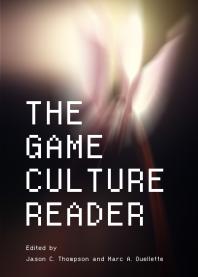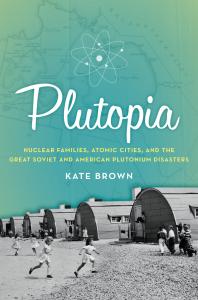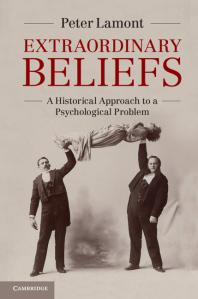Stranger Things is a Netflix series set in the fictional town of Hawkins, Indiana in the early 1980s. The series began airing in 2016 and is planned to run for four or five seasons. It was created by the Duffer brothers, who pay tribute, in ways large and small, to the 1980s movies and culture that inspired them. This page organizes resources relevant to researching themes in the series, which form the basis for assignments in a special section of ENGL 111.
 Brewer's Dictionary of Phrase and Fable
by
Editor Susie Dent
Brewer's Dictionary of Phrase and Fable
by
Editor Susie Dent
 Chambers Dictionary of the Unexplained
by
Editor: Una McGovern
Chambers Dictionary of the Unexplained
by
Editor: Una McGovern
 Elsevier's Dictionary of Psychological Theories
by
Roeckelein, Jon E., editor.
Elsevier's Dictionary of Psychological Theories
by
Roeckelein, Jon E., editor.
 Stranger Things Fan Website
Stranger Things Fan Website
You will get better results if you search key words, not sentences. Always consider broader terms and synonyms. For example, search "conspiracy theories" to get background information on the MKUltra program. Put short phrases like this into quotes.
Because Stranger Things is so recent, you may need to consider credible sources as well as scholarly/peer reviewed articles. You can turn the limiter for scholarly/peer reviewed off in the library databases.
Use the date limits: for example, you can set the beginning date to January 1, 2016 the year when the show began production
Look for Full Text indicators in your search results, or set this as a search limit. Articles without full text can be requested using the Interlibrary Loan form on the Request Materials tab of the Library webpage.
Reference works, Scholarly journals, Trade publications, and important General interest magazines covering core academic subject areas. Help Guide available.
Search multiple EBSCO databases including Academic Search Elite, Health Source Nursing/Academic Edition, and more.
Defaults to Academic Search Elite, click on “Searching:” above the search boxes to select additional databases.
Search back issues of scholarly journals in arts, humanities, and social science disciplines, as well as business, finance, and health science fields; capture titles that cross discipline boundaries. Dates from the 1700s on, with a lag of more than one year. Allows advanced searching. Includes some open-access Artstor materials.
Because Stranger Things is so recent, you will find mostly books about related topics and concepts in the library databases. Recommended databases for ST topics (including the CIA, history, literary and film criticism, nostalgia, psychology, and small-town sociology):
Extensive collection of online academic books in all subject areas.
Extensive collection of online academic books in all subject areas
 Game Culture Reader
by
Jason C. Thompson and Marc A. Ouellette
In The Game Culture Reader, editors Jason C. Thompson and Marc A. Ouellette propose that Game Studies—that peculiar multi-, inter-, and trans-disciplinary field wherein international researchers from such diverse areas as rhetoric, computer science, literary studies, culture studies, psychology, media studies and so on come together to study the production, distribution, and consumption of games—has reached an unproductive stasis. Its scholarship remains either divided (as in the narratologists versus ludologists debate) or indecisive (as in its frequently apolitical stances on play and fandom). Thompson and Ouellette firmly hold that scholarship should be distinguished from the repetitively reductive commonplaces of violence, sexism, and addiction. In other words, beyond the headline-friendly modern topoi that now dominate the discourse of Game Studies, what issues, approaches, and insights are being, if not erased, then displaced?This volume gathers together a host of scholars from different countries, institutions, disciplines, departments, and ranks, in order to present original and evocative scholarship on digital game culture. Collectively, the contributors reject the commonplaces that have come to define digital games as apolitical or as somehow outside of the imbricated processes of cultural production that govern the medium itself.As an alternative, they offer essays that explore video game theory, ludic spaces and temporalities, and video game rhetorics. Importantly, the authors emphasize throughout that digital games should be understood on their own terms: literally, this assertion necessitates the serious reconsideration of terms borrowed from other academic disciplines; figuratively, the claim embeds the embrace of game play in the continuing investigation of digital games as cultural forms. Put another way, by questioning the received wisdom that would consign digital games to irrelevant spheres of harmless child’s play or of invidious mass entertainment, the authors productively engage with ludic ambiguities.
Game Culture Reader
by
Jason C. Thompson and Marc A. Ouellette
In The Game Culture Reader, editors Jason C. Thompson and Marc A. Ouellette propose that Game Studies—that peculiar multi-, inter-, and trans-disciplinary field wherein international researchers from such diverse areas as rhetoric, computer science, literary studies, culture studies, psychology, media studies and so on come together to study the production, distribution, and consumption of games—has reached an unproductive stasis. Its scholarship remains either divided (as in the narratologists versus ludologists debate) or indecisive (as in its frequently apolitical stances on play and fandom). Thompson and Ouellette firmly hold that scholarship should be distinguished from the repetitively reductive commonplaces of violence, sexism, and addiction. In other words, beyond the headline-friendly modern topoi that now dominate the discourse of Game Studies, what issues, approaches, and insights are being, if not erased, then displaced?This volume gathers together a host of scholars from different countries, institutions, disciplines, departments, and ranks, in order to present original and evocative scholarship on digital game culture. Collectively, the contributors reject the commonplaces that have come to define digital games as apolitical or as somehow outside of the imbricated processes of cultural production that govern the medium itself.As an alternative, they offer essays that explore video game theory, ludic spaces and temporalities, and video game rhetorics. Importantly, the authors emphasize throughout that digital games should be understood on their own terms: literally, this assertion necessitates the serious reconsideration of terms borrowed from other academic disciplines; figuratively, the claim embeds the embrace of game play in the continuing investigation of digital games as cultural forms. Put another way, by questioning the received wisdom that would consign digital games to irrelevant spheres of harmless child’s play or of invidious mass entertainment, the authors productively engage with ludic ambiguities.
 Plutopia
by
Kate Brown
While many transnational histories of the nuclear arms race have been written, Kate Brown provides the first definitive account of the great plutonium disasters of the United States and the Soviet Union.In Plutopia, Brown draws on official records and dozens of interviews to tell the extraordinary stories of Richland, Washington and Ozersk, Russia-the first two cities in the world to produce plutonium. To contain secrets, American and Soviet leaders created plutopias--communities of nuclear families living in highly-subsidized, limited-access atomic cities. Fully employed and medically monitored, the residents of Richland and Ozersk enjoyed all the pleasures of consumer society, while nearby, migrants, prisoners, and soldiers were banned from plutopia--they lived in temporary "staging grounds" and often performed the most dangerous work at the plant. Brown shows that the plants' segregation of permanent and temporary workers and of nuclear and non-nuclear zones created a bubble of immunity, where dumps and accidents were glossed over and plant managers freely embezzled and polluted. In four decades, the Hanford plant near Richland and the Maiak plant near Ozersk each issued at least 200 million curies of radioactive isotopes into the surrounding environment--equaling four Chernobyls--laying waste to hundreds of square miles and contaminating rivers, fields, forests, and food supplies. Because of the decades of secrecy, downwind and downriver neighbors of the plutonium plants had difficulty proving what they suspected, that the rash of illnesses, cancers, and birth defects in their communities were caused by the plants' radioactive emissions. Plutopia was successful because in its zoned-off isolation it appeared to deliver the promises of the American dream and Soviet communism; in reality, it concealed disasters that remain highly unstable and threatening today.An untold and profoundly important piece of Cold War history, Plutopia invites readers to consider the nuclear footprint left by the arms race and the enormous price of paying for it.
Plutopia
by
Kate Brown
While many transnational histories of the nuclear arms race have been written, Kate Brown provides the first definitive account of the great plutonium disasters of the United States and the Soviet Union.In Plutopia, Brown draws on official records and dozens of interviews to tell the extraordinary stories of Richland, Washington and Ozersk, Russia-the first two cities in the world to produce plutonium. To contain secrets, American and Soviet leaders created plutopias--communities of nuclear families living in highly-subsidized, limited-access atomic cities. Fully employed and medically monitored, the residents of Richland and Ozersk enjoyed all the pleasures of consumer society, while nearby, migrants, prisoners, and soldiers were banned from plutopia--they lived in temporary "staging grounds" and often performed the most dangerous work at the plant. Brown shows that the plants' segregation of permanent and temporary workers and of nuclear and non-nuclear zones created a bubble of immunity, where dumps and accidents were glossed over and plant managers freely embezzled and polluted. In four decades, the Hanford plant near Richland and the Maiak plant near Ozersk each issued at least 200 million curies of radioactive isotopes into the surrounding environment--equaling four Chernobyls--laying waste to hundreds of square miles and contaminating rivers, fields, forests, and food supplies. Because of the decades of secrecy, downwind and downriver neighbors of the plutonium plants had difficulty proving what they suspected, that the rash of illnesses, cancers, and birth defects in their communities were caused by the plants' radioactive emissions. Plutopia was successful because in its zoned-off isolation it appeared to deliver the promises of the American dream and Soviet communism; in reality, it concealed disasters that remain highly unstable and threatening today.An untold and profoundly important piece of Cold War history, Plutopia invites readers to consider the nuclear footprint left by the arms race and the enormous price of paying for it.
 Extraordinary Beliefs
by
Peter Lamont
Since the early nineteenth century, mesmerists, mediums and psychics have exhibited extraordinary phenomena. These have been demonstrated, reported and disputed by every modern generation. We continue to wonder why people believe in such things, while others wonder why they are dismissed so easily. Extraordinary Beliefs takes a historical approach to an ongoing psychological problem: why do people believe in extraordinary phenomena? It considers the phenomena that have been associated with mesmerism, spiritualism, psychical research and parapsychology. By drawing upon conjuring theory, frame analysis and discourse analysis, it examines how such phenomena have been made convincing in demonstration and report, and then disputed endlessly. It argues that we cannot understand extraordinary beliefs unless we properly consider the events in which people believe, and what people believe about them. And it shows how, in constructing and maintaining particular beliefs about particular phenomena, we have been in the business of constructing ourselves.
Extraordinary Beliefs
by
Peter Lamont
Since the early nineteenth century, mesmerists, mediums and psychics have exhibited extraordinary phenomena. These have been demonstrated, reported and disputed by every modern generation. We continue to wonder why people believe in such things, while others wonder why they are dismissed so easily. Extraordinary Beliefs takes a historical approach to an ongoing psychological problem: why do people believe in extraordinary phenomena? It considers the phenomena that have been associated with mesmerism, spiritualism, psychical research and parapsychology. By drawing upon conjuring theory, frame analysis and discourse analysis, it examines how such phenomena have been made convincing in demonstration and report, and then disputed endlessly. It argues that we cannot understand extraordinary beliefs unless we properly consider the events in which people believe, and what people believe about them. And it shows how, in constructing and maintaining particular beliefs about particular phenomena, we have been in the business of constructing ourselves.
Academic writing requires that you cite the sources you use, so that your readers can judge if you have used credible information. When you use in-text citations, readers also can see clearly what ideas are your original content. Writers want to write in their own words and avoid plagiarism.
The preferred style for citations in English papers is MLA, defined by the Modern Language Association. The preferred style for psychology and sociology papers is APA. These styles also define the overall layout of your paper.
The guides linked below offer more details.


